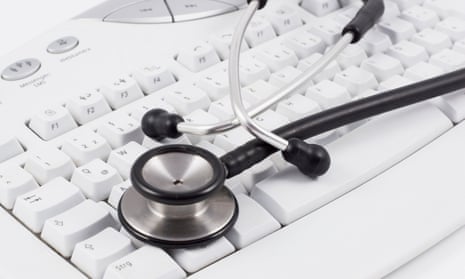Technology helps us live better and for longer; in fact it has been doing so since the birth of modern medicine. And as each new technology comes into use, it turns out to have medical uses, even though these are not always the ones that are sold hardest: in the 1920s the American press was full of advertisements for the health benefits of radium, which was then a mysterious and powerful substance just as artificial intelligence (AI) is today. AI won’t work miracles or make death unnecessary by letting people upload their minds into silicon, but it might catch cancers earlier. The prime minister on Monday said that 30,000 lives a year would be saved by 2030, mostly through earlier and more accurate diagnosis. This is about 10% of the annual cancer death rate in Britain. It is possible to object that the money would be better spent on less glamorous initiatives, such as hiring enough care workers, nurses and doctors and paying them all properly. But while that is certainly very urgent, there is no need to choose between the two approaches. We need both.
At the same time, one of Britain’s biggest health trusts, University College London Hospitals (UCLH), announced a partnership with the Alan Turing Institute, a body that collects the AI expertise of British universities, which looks realistically promising. It starts from the question of how the NHS can use AI, rather than asking how AI can rescue the NHS, which of course it can’t. There is a huge contrast here with some of the earlier attempts in this direction, in particular the partnership between Google’s subsidiary DeepMind and the Royal Free hospital, which was widely and rightly criticised because Google gained access to the benefits of data that had been collected from patients and by the trust without any of the patients having consented to this. Indeed, they could not have given informed consent in many cases, because the use to which their data would be put was literally unthinkable at the time when it was collected. Privacy alone is an inadequate framework in which to place all the problems that arise with the collection and exploitation of data.
Yet because machine learning techniques require enormous quantities of data to be trained on, the possession of such data hoards is what really distinguishes the big players from the rest. So the most important piece of news to emerge from recent announcements has been the assurance from the UCLH trust that it will maintain control over all the data that is to be examined, and that examination will be done in house. This is necessary for privacy, but, almost more importantly, because the application of machine learning techniques is – even more than most software development – more like gardening than architecture. The work is never done or perfected.
The data changes over time, and with it the techniques that can extract what users need to know. In the short term, there are already some well-established successes in the field of image recognition. Some programs have achieved or even surpassed human performance when it comes to recognising skin cancers. They could provide a useful second opinion to the human operators, even if they can’t and shouldn’t replace them entirely. In the long term, the hope is that AI will help hospitals in the management of patients as well as their diagnosis; it might sort the queues in A&E so that the most dangerous symptoms were prioritised even when they weren’t obvious. We have often argued that the giant tech companies make bad masters. But here is a field where the technology itself can make a good servant to the NHS.
